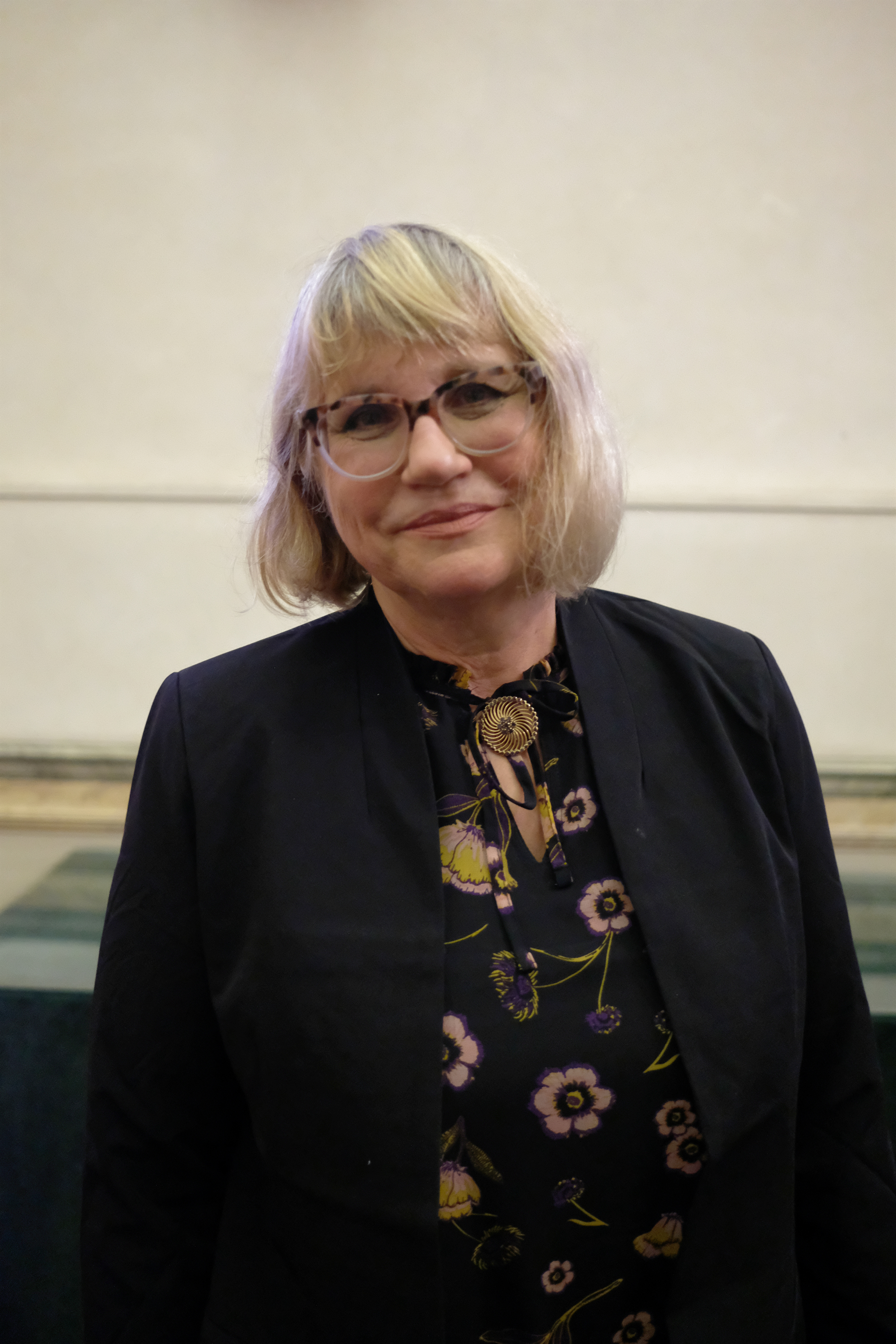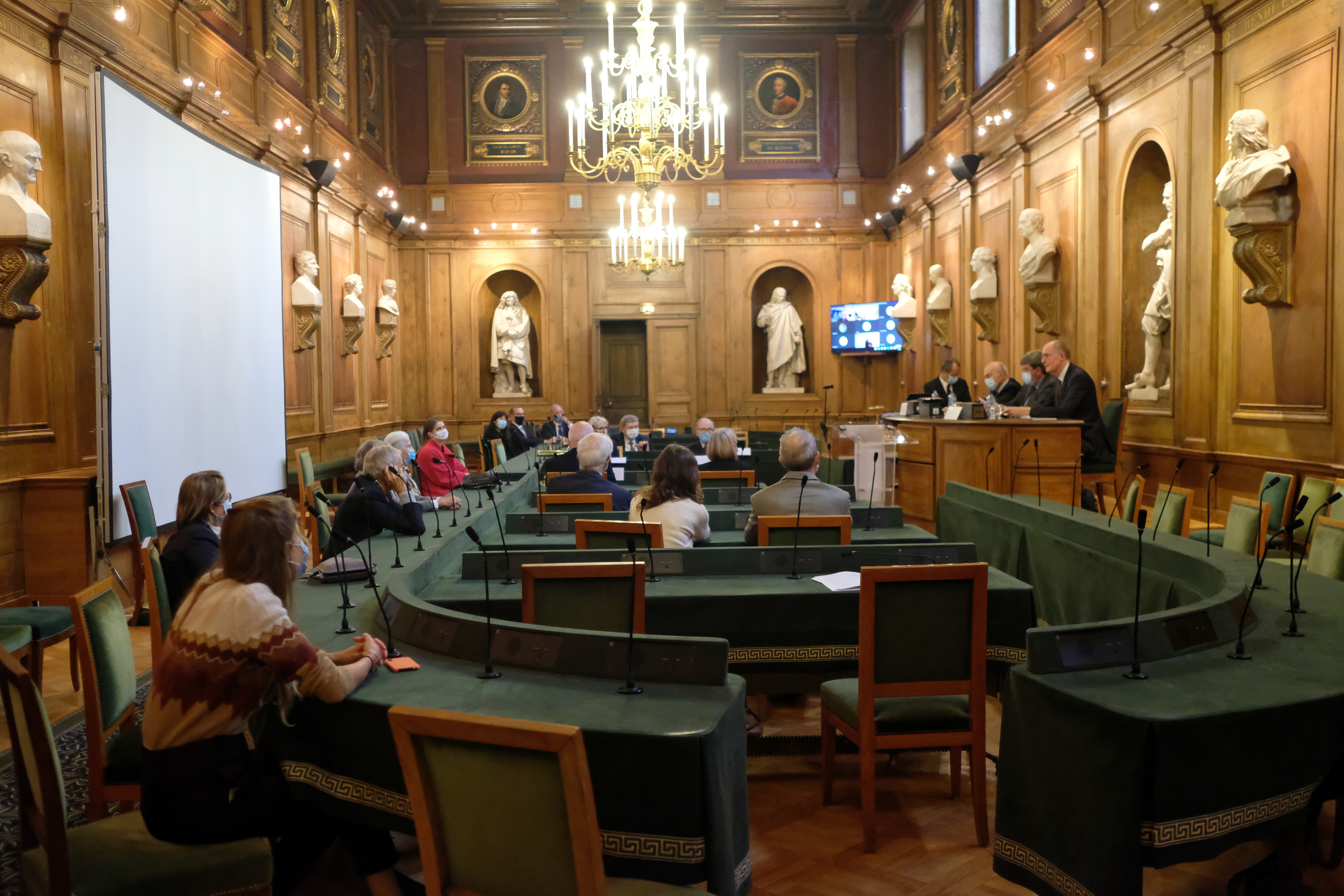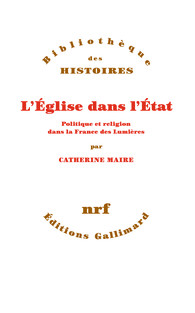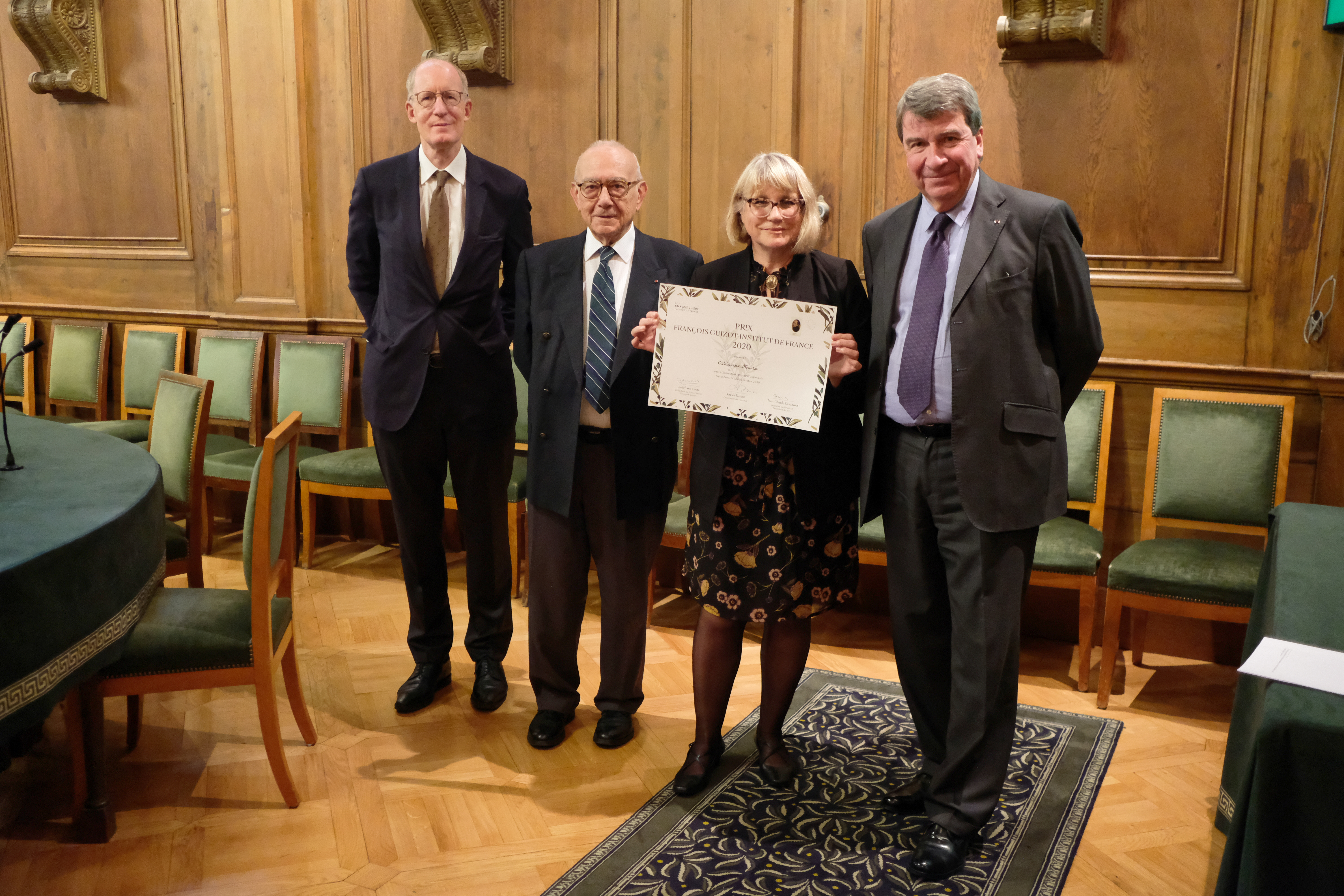On October 5, 2020 the François Guizot-Institut de France Prize was awarded to Catherine Maire for her book entitled:
L’Église dans l’État, Éditions Gallimard (The Church in the State), published in French by Gallimard.
“Catherine Maire had written a major book twenty years ago, to Jansenism in the 18th century, From the cause of God to the cause of the Nation. She broadens her investigation here to all of the politico-religious affairs that marked the century, from the bubble Unigenitus (1713) which condemns Jansenism and becomes a law of the kingdom in 1730 to the Civil Constitution of the clergy, in 1790, during the French Revolution. Far from easing the tensions linked to the Gallican tradition, the assertion of the monarchy’s independence from the Holy See at the end of the 17th century reactivated them on new foundations. Hence the title of The Church in the State, which highlights how inclusion has become a source of divisions.
The author in addition of making a large review of the great controversies which followed one another in the wake of the case of the bubble Unigenitus, around the ecclesiastical goods, the refusals of sacraments, the civil status of the Protestants or the expulsion of the Jesuits. She highlights the common thread that links all of these episodes; it releases the meanings of these passionate quarrels which have become unintelligible to us; it highlights the challenges of this search for an impossible balance between religious freedoms and political necessities.
Finally, she shows how these disputes constitute the breeding ground for the thought of the philosophers of the Enlightenment. From the Abbé de Saint-Pierre to d’Holbach, via Montesquieu, Voltaire and Rousseau, philosophy takes on a new life by being linked to the news from which it is born and nurtured.“
—————————————————————————
 Catherine Maire is a historian, researcher at the CNRS, statutory member of the Raymond Aron Center for Sociological and Political Studies (CESPRA) of the École des Hautes Etudes en Sciences Sociales.
Catherine Maire is a historian, researcher at the CNRS, statutory member of the Raymond Aron Center for Sociological and Political Studies (CESPRA) of the École des Hautes Etudes en Sciences Sociales.
A specialist in Jansenism in the 18th century, her current research focuses on Gallicanism, in particular on its developments in the second half of the 18th century. She was particularly interested in the role of Jansenism in the intellectual and religious origins of the French Revolution, not without opposing the ideas of Dale K. Van Kley on the subject. Her latest book on Gallicanism, titled “L’Egise dans l’Etat” (“Church in State”), shows how inclusion has become the source of further divisions. The major controversies which have followed one another in the wake of the Unigenitus bubble affair, around ecclesiastical property, the refusal of sacraments, the civil status of Protestants or the expulsion of Jesuits highlight the issues of research of an impossible balance between religious freedoms and political necessities, the Gallican ideal par excellence. They constitute the breeding ground in which the thought of the philosophers of the Enlightenment is rooted as well as the provisional solutions of the so-called Edict of Tolerance and the Civil Constitution of the Clergy.
View the video recording of the ceremony (in French).
![]() Read Xavier Darcos’ speech, chancelier de l’Institut de France
Read Xavier Darcos’ speech, chancelier de l’Institut de France
![]() Read Stéphane Coste’s speech, descendant from François Guizot and president from the association François Guizot
Read Stéphane Coste’s speech, descendant from François Guizot and president from the association François Guizot
![]() Read Jean-Claude Casanova’s speech, president of the jury and member of the Institut
Read Jean-Claude Casanova’s speech, president of the jury and member of the Institut
![]() Read Catherine Maire’s speech, laureate from the Guizot-Institut de France 2020 prize
Read Catherine Maire’s speech, laureate from the Guizot-Institut de France 2020 prize


